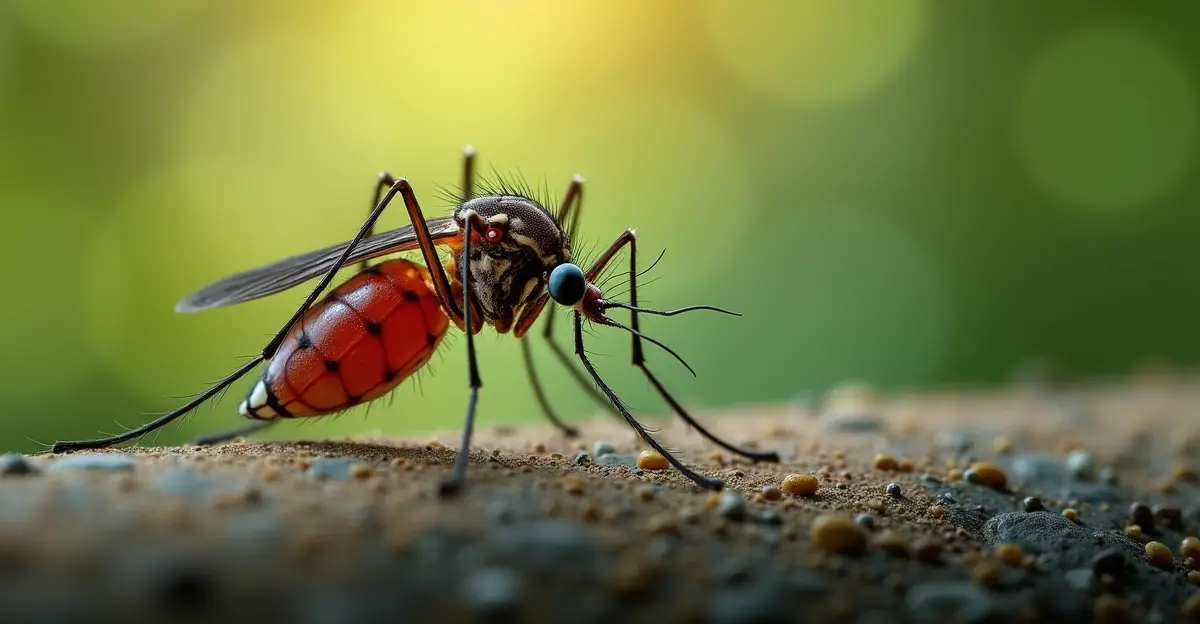Gene-edited mosquitoes using CRISPR technology show 50% reduction in malaria transmission in field trials. Modified FREP1 gene blocks parasite development, offering sustainable solution amid growing insecticide and drug resistance.

Breakthrough in Malaria Control
In a landmark development for global health, field trials of gene-edited mosquitoes have demonstrated significant reductions in malaria transmission rates. Researchers using CRISPR-Cas9 technology have engineered mosquitoes that are resistant to malaria parasites, offering new hope in the fight against a disease that killed approximately 597,000 people in 2023, mostly children under five in sub-Saharan Africa.
The Science Behind the Success
The breakthrough centers on modifying the FREP1 gene in Anopheles mosquitoes, the primary vectors for malaria transmission. Scientists from institutions including UC San Diego, Johns Hopkins University, and Imperial College London developed what they call an 'allelic-drive' system that replaces a single amino acid in the FREP1 protein. This tiny genetic change - swapping L224 for Q224 - prevents malaria parasites from reaching the mosquitoes' salivary glands, effectively blocking transmission to humans.
Dr. Anthony James, a leading researcher in the field, explained: 'This represents a paradigm shift in vector control. We're not trying to eliminate mosquitoes, but rather convert them from disease vectors into allies against malaria.'
Field Trial Results
Recent field studies conducted in controlled environments showed remarkable results. Mosquito populations carrying the modified FREP1Q224 allele demonstrated infection rates of only 30% compared to 80% in normal mosquitoes. Even more significantly, infected mosquitoes showed minimal parasites in their salivary glands, preventing effective transmission to humans.
The gene drive system proved highly efficient, spreading the protective trait through mosquito populations with over 94% efficiency within 10 generations. 'The speed at which this modification spreads through populations is unprecedented,' noted Dr. Omar Akbari from UC San Diego.
Addressing Resistance Challenges
This development comes at a critical time as traditional malaria control methods face growing challenges. Mosquitoes are developing resistance to insecticides, while malaria parasites are becoming resistant to anti-malarial drugs. The World Health Organization reports that insecticide resistance has been detected in at least 78 countries, complicating efforts to control malaria through conventional means.
Dr. Flaminia Catteruccia from Harvard University commented: 'We're running out of options with current tools. Genetic approaches offer a sustainable solution that could complement existing control methods.'
Ethical and Regulatory Considerations
Despite the promising results, the technology faces significant ethical and regulatory hurdles. The recent suspension of the Target Malaria gene drive project in Burkina Faso following a government raid highlights the complex landscape for genetic modification technologies in malaria-endemic regions.
Environmental groups have raised concerns about potential ecological impacts. 'We need thorough risk assessment before any widespread deployment,' cautioned Dr. Ricarda Steinbrecher from the Federation of German Scientists.
Future Prospects
Researchers emphasize that this technology should be part of an integrated approach to malaria control, working alongside insecticide-treated nets, indoor residual spraying, and antimalarial medications. Further field trials are planned for 2026 in carefully monitored settings to assess long-term impacts and ecological safety.
The Gates Foundation, which has invested heavily in malaria research, sees this as a promising development. 'While challenges remain, this represents one of the most promising tools we've seen in decades for potentially eliminating malaria,' said a foundation spokesperson.
As research continues, the global health community watches closely, hoping that genetic technologies might finally provide the breakthrough needed to control a disease that has plagued humanity for centuries.

 Nederlands
Nederlands
 English
English
 Deutsch
Deutsch
 Français
Français
 Español
Español
 Português
Português








